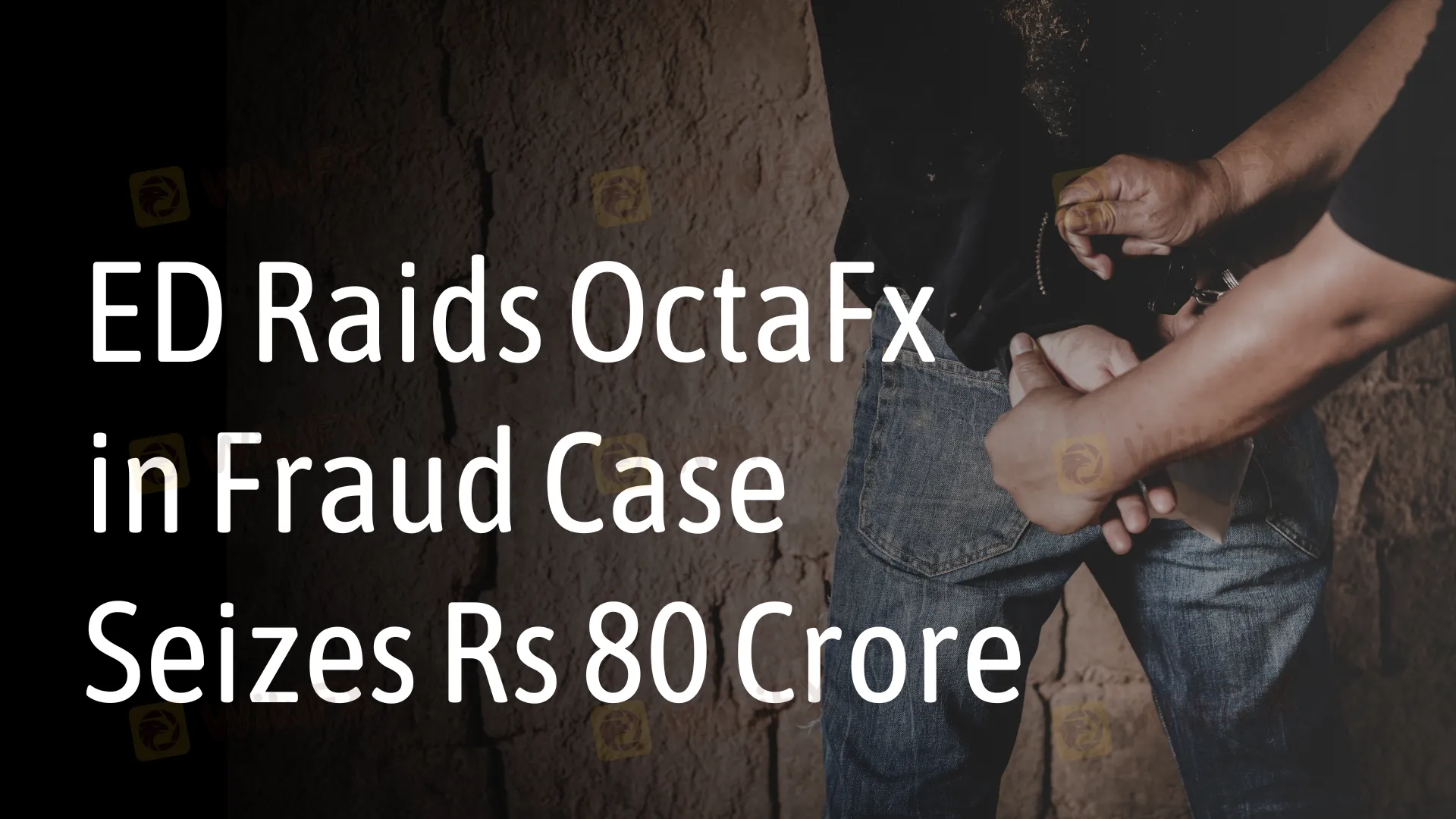简体中文
繁體中文
English
Pусский
日本語
ภาษาไทย
Tiếng Việt
Bahasa Indonesia
Español
हिन्दी
Filippiiniläinen
Français
Deutsch
Português
Türkçe
한국어
العربية
ED Raids OctaFx in Fraud Case, Seizes Rs 80 Crore
Abstract:ED raids forex trading platform OctaFx in a massive fraud case, seizing over Rs 80 crore in assets. Investigations reveal extensive money laundering.

The Enforcement Directorate (ED) has initiated a series of search operations in numerous locations, including Mumbai, Kolkata, Delhi, and Gurgaon, aimed at the forex trading website OctaFx. The website is being investigated for allegedly scamming investors of considerable money.
The searches were part of a larger inquiry launched under the Prevention of Money Laundering Act. The action against OctaFx started with an FIR filed in Pune, accusing the platform of enticing investors with false promises of huge profits via its trading services. Forex trading, also known as foreign exchange trading, is buying and selling currencies to benefit from exchange rate movements.
The Reserve Bank of India (RBI) still needs to license the OctaFx app and website for currency trading, which raises serious issues. The ED probe indicated that OctaFx's Indian subsidiary and its connected organizations misled investors and amassed more than Rs 1,000 crore from inside the nation.

A large percentage of the amount was routed via a complicated web of transactions involving shell firms. These transactions were disguised as payments for phony freight and import services, enabling the funds to be transferred overseas to linked parties. The unlawfully acquired monies were also routed via SEBI-registered Alternative Investment monies (AIFs) to create the illusion of legality.
Further research revealed that OctaFx utilized businesses headquartered in the British Virgin Islands and Estonia to transfer cash for promotional efforts to attract new investors. The proprietors of OctaFx group companies in Russia, Spain, Georgia, and Dubai reportedly managed the operations and transactions.
During the searches, the ED seized over Rs 38 crore valuables, including cryptocurrency, bank balances, and gold coins. Additionally, moveable assets such as bank cash and Demat account holdings worth Rs 80.43 crore have been blocked. Several damning papers and digital gadgets were also recovered during the raids.
In this instance, the attached or frozen assets have a total worth of around Rs 118 crore. The ED has noted that the investigation is continuing, with more inquiries anticipated to provide more information about the scope of the fraud and the persons involved.
The ED's assault on OctaFx underscores continuing efforts to combat financial crime and safeguard investors from unethical trading platforms. The agency will continue to monitor and investigate organizations engaged in such fraudulent acts to guarantee legal and financial responsibility.

Disclaimer:
The views in this article only represent the author's personal views, and do not constitute investment advice on this platform. This platform does not guarantee the accuracy, completeness and timeliness of the information in the article, and will not be liable for any loss caused by the use of or reliance on the information in the article.
Read more

The Hidden Checklist: Five Unconventional Steps to Vet Your Broker
Forex broker scams continue to evolve, employing new tactics to appear credible and mislead unsuspecting traders. Identifying these fraudulent schemes requires vigilance and strategies beyond the usual advice. Here are five effective methods to help traders assess the legitimacy of a forex broker and avoid potential pitfalls.

Doo Financial Obtains Licenses in BVI and Cayman Islands
Doo Financial, a subsidiary of Singapore-based Doo Group, has expanded its regulatory footprint by securing new offshore licenses from the British Virgin Islands Financial Services Commission (BVI FSC) and the Cayman Islands Monetary Authority (CIMA).

CFI’s New Initiative Aims to Promote Transparency in Trading
A new programme has been launched by CFI to address the growing need for transparency and awareness in online trading. Named “Trading Transparency+: Empowering Awareness and Clarity in Trading,” the initiative seeks to combat misinformation and equip individuals with resources to evaluate whether trading aligns with their financial goals and circumstances.

Malaysian-Thai Fraud Syndicate Dismantled, Millions in Losses Reported
The Royal Malaysia Police (PDRM) has received 26 reports concerning the Nicshare and CommonApps investment schemes, both linked to a major fraudulent syndicate led by a Malaysian citizen. The syndicate’s activities came to light following the arrest of its leader by Thai authorities on 16 December.
WikiFX Broker
Latest News
ASIC Sues Binance Australia Derivatives for Misclassifying Retail Clients
Top 10 Trading Indicators Every Forex Trader Should Know
WikiFX Review: Is FxPro Reliable?
Malaysian-Thai Fraud Syndicate Dismantled, Millions in Losses Reported
Trading frauds topped the list of scams in India- Report Reveals
AIMS Broker Review
The Hidden Checklist: Five Unconventional Steps to Vet Your Broker
YAMARKETS' Jingle Bells Christmas Offer!
Revolut Leads UK Neobanks in the Digital Banking Revolution
Fusion Markets: Safe Choice or Scam to Avoid?
Currency Calculator


